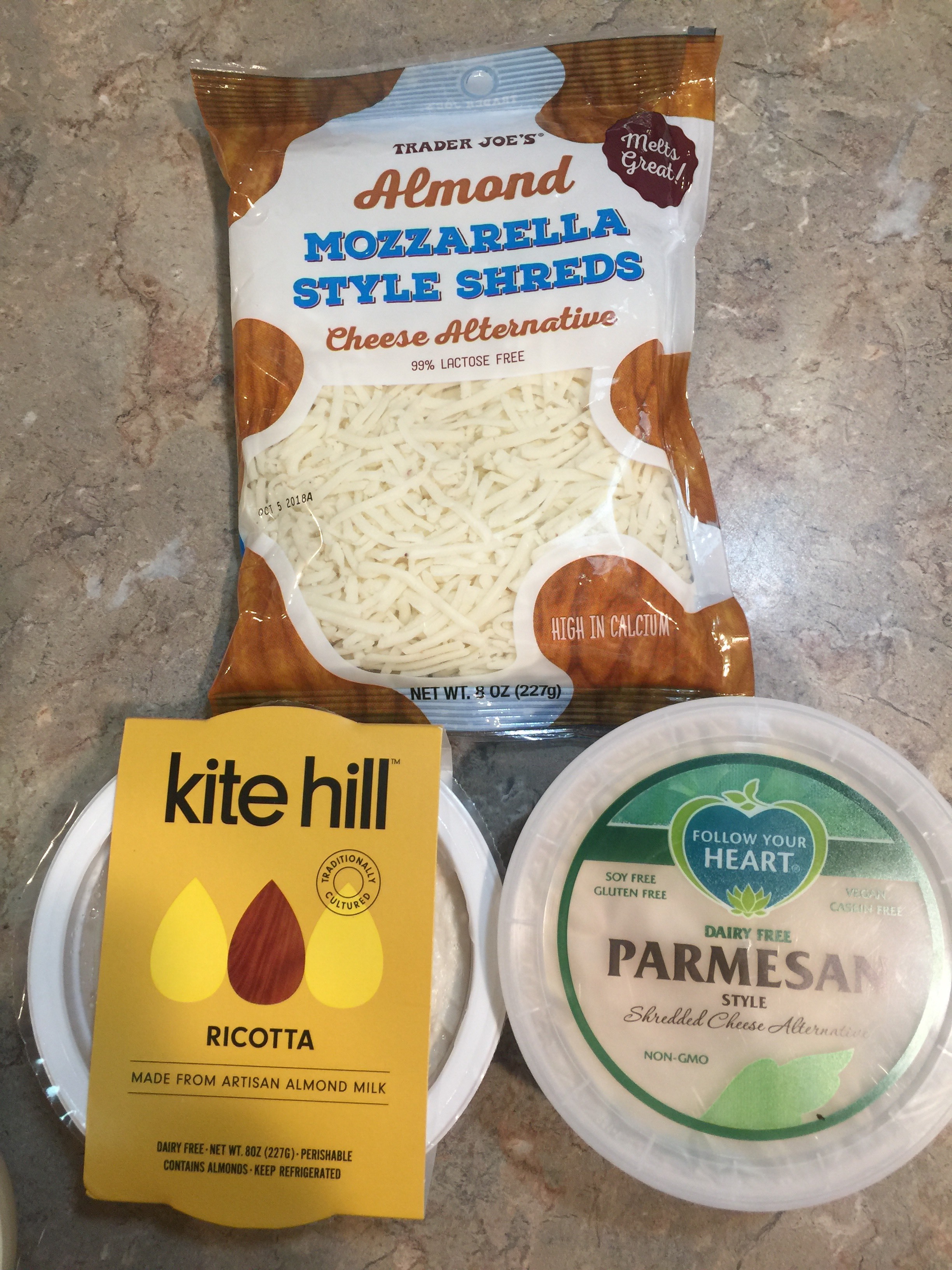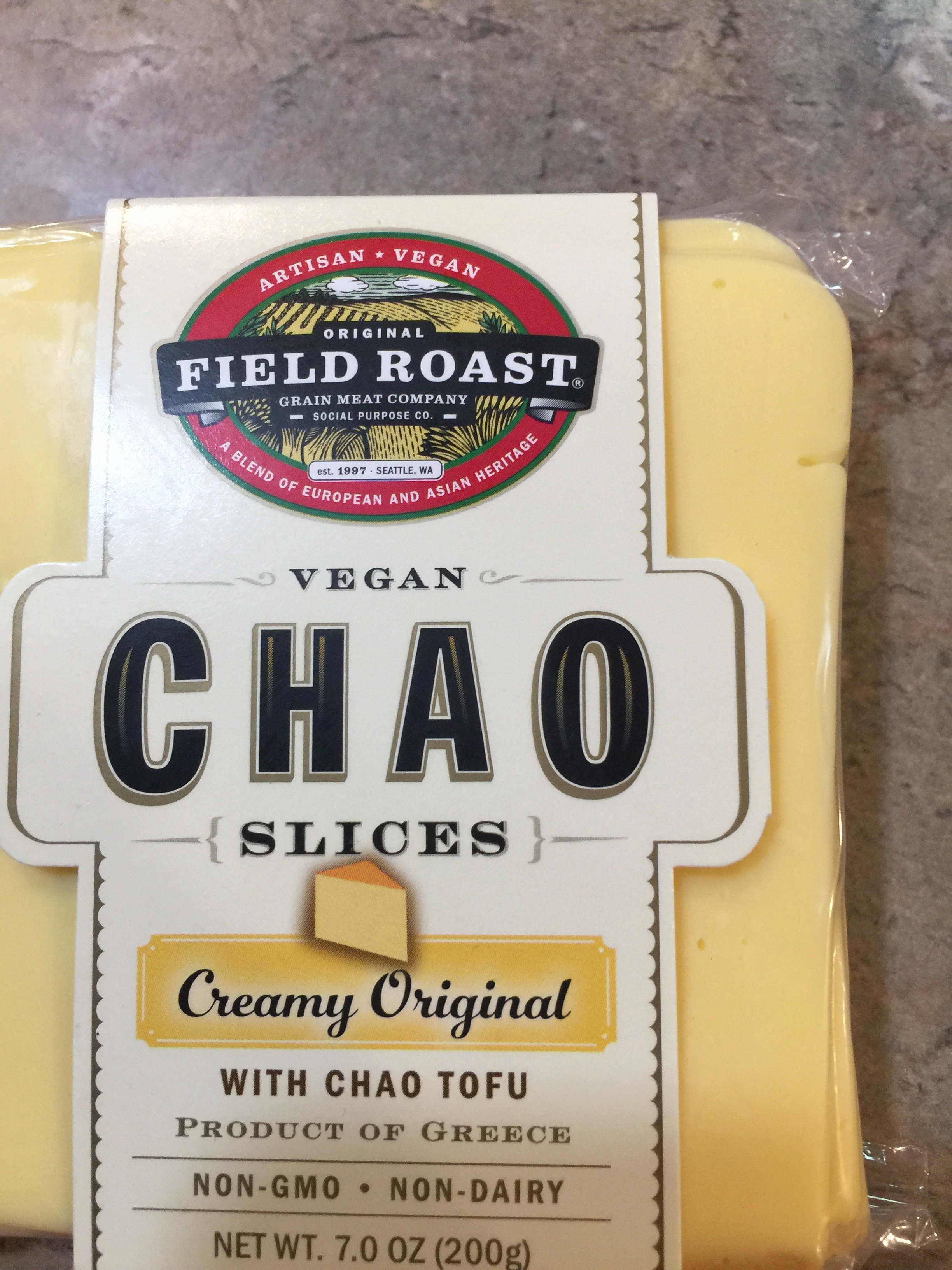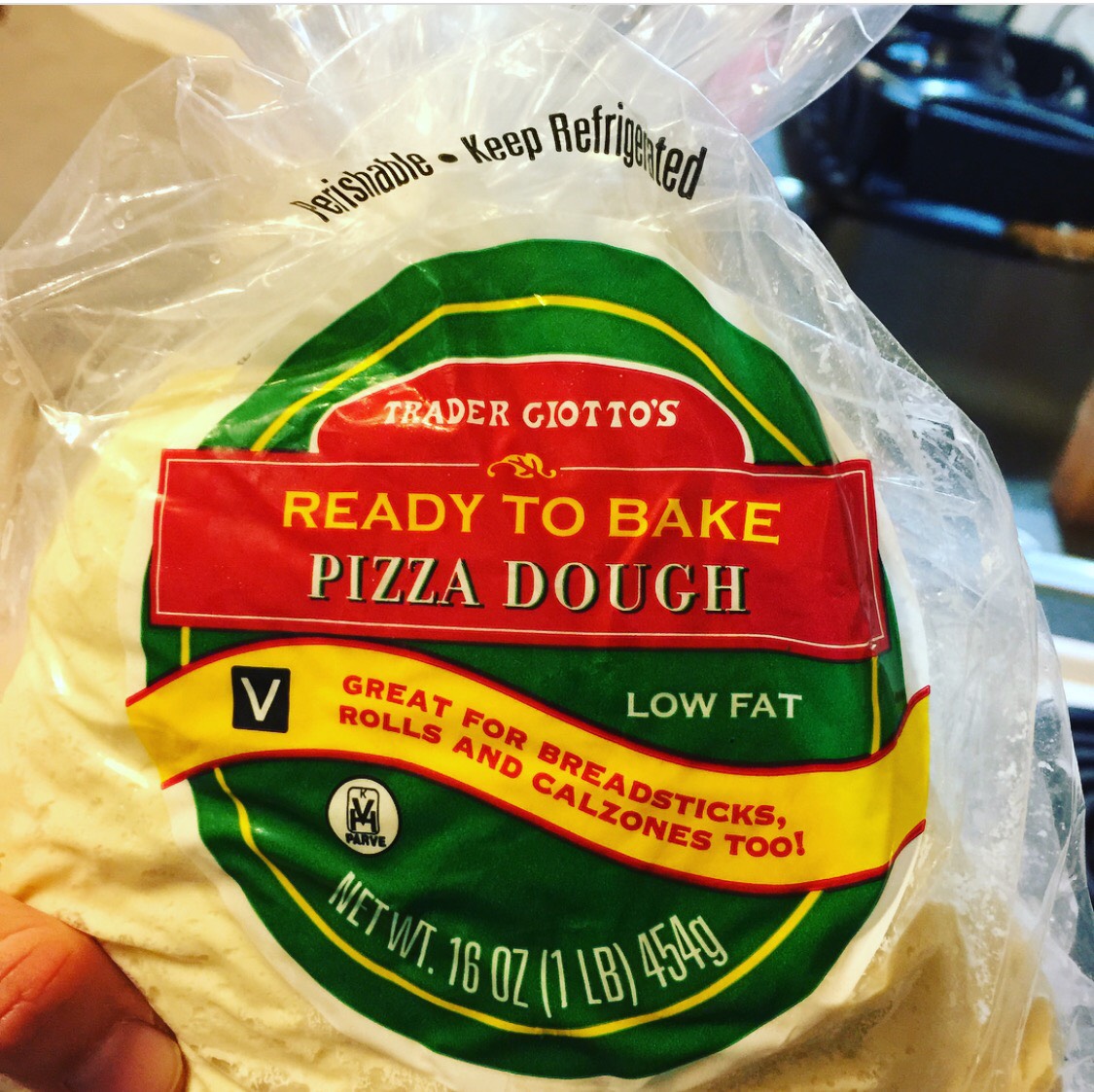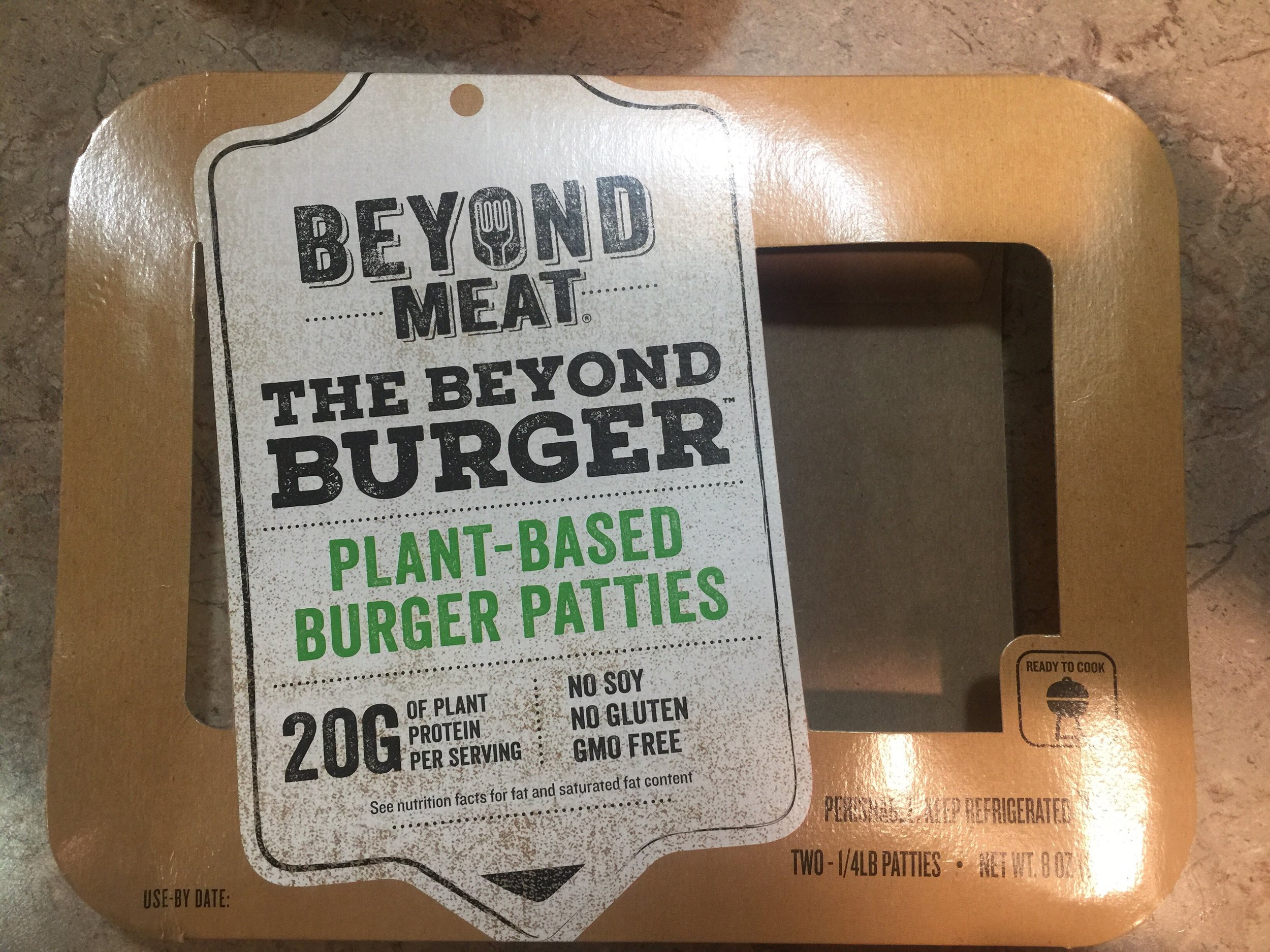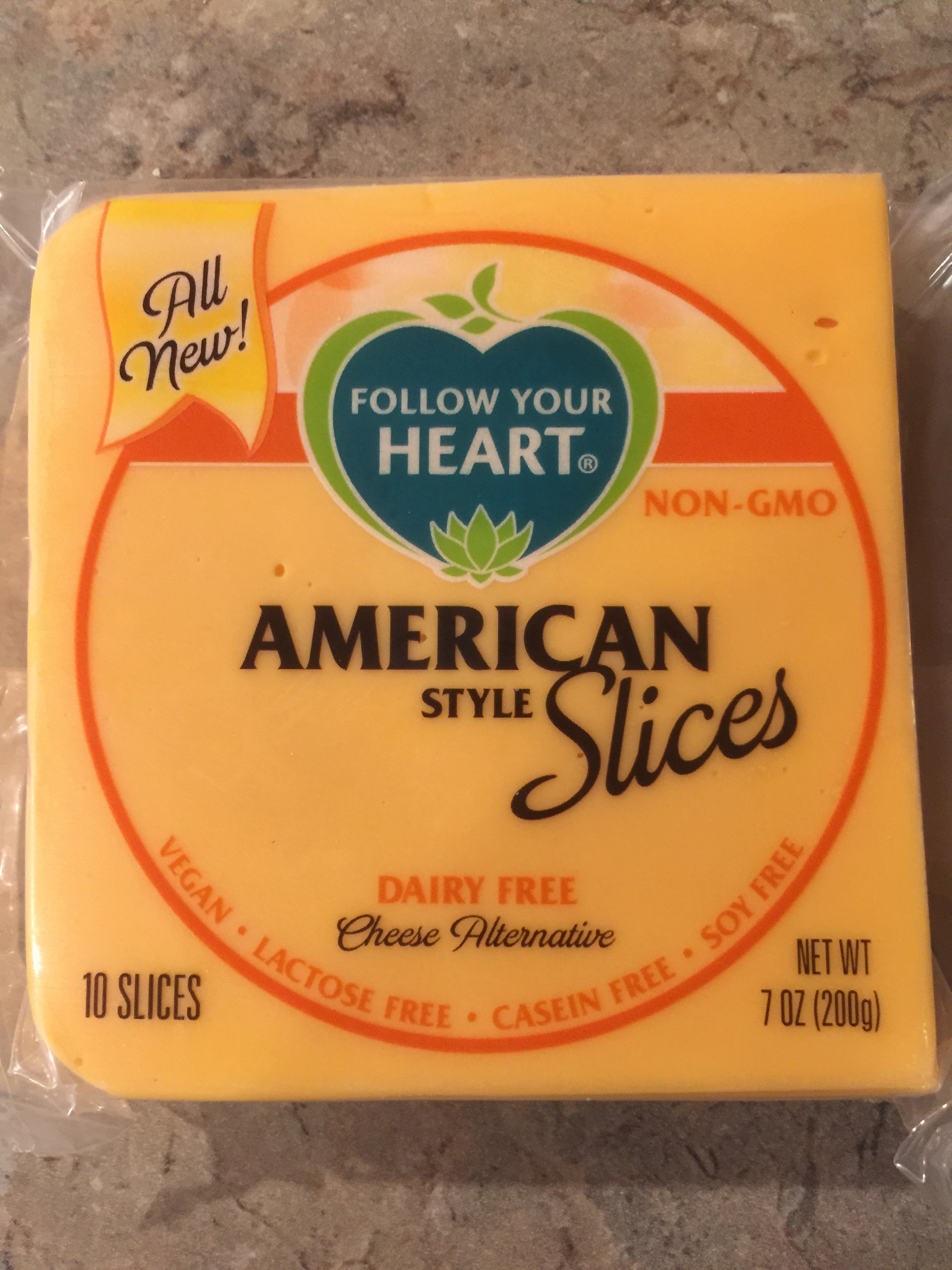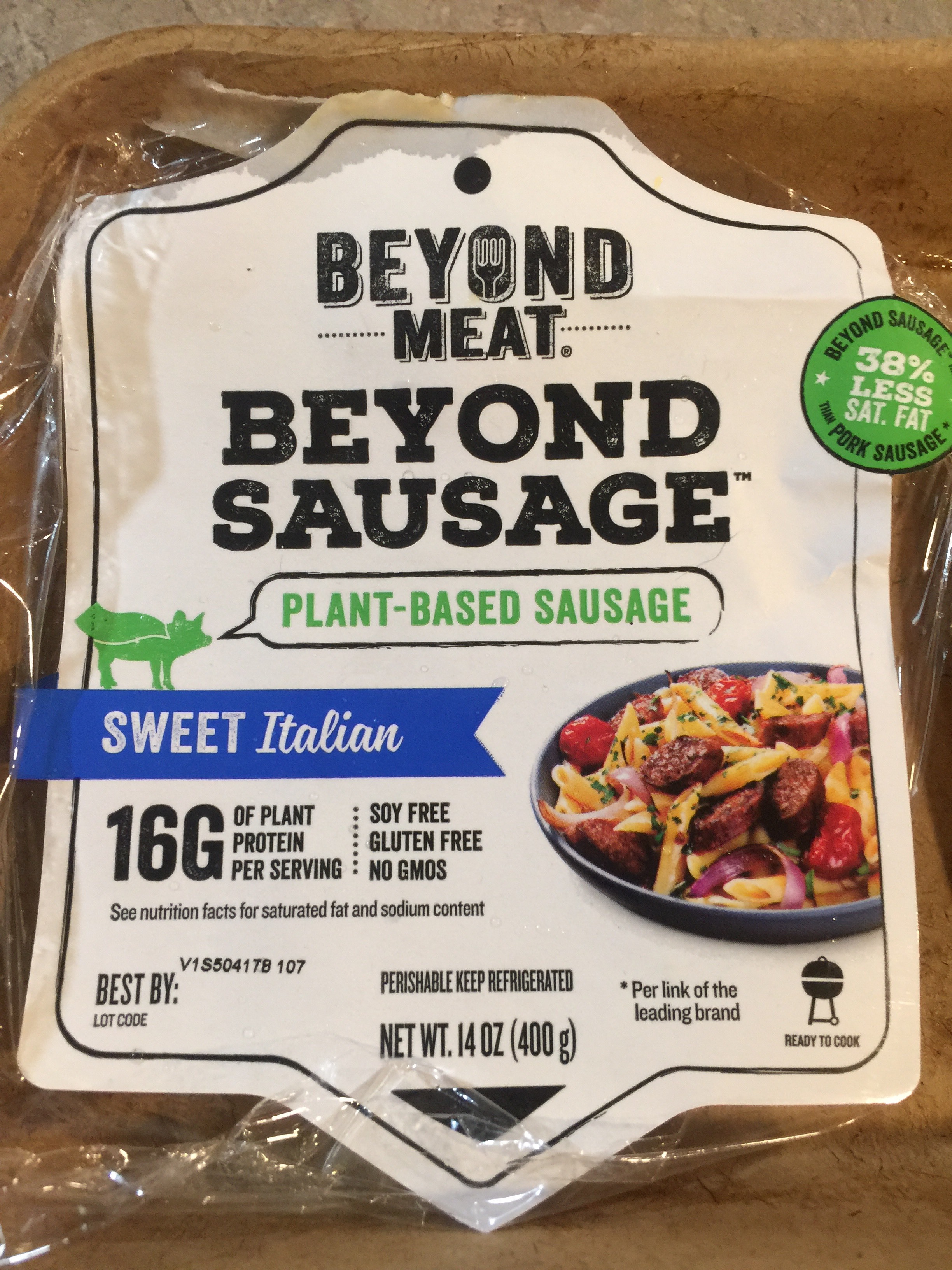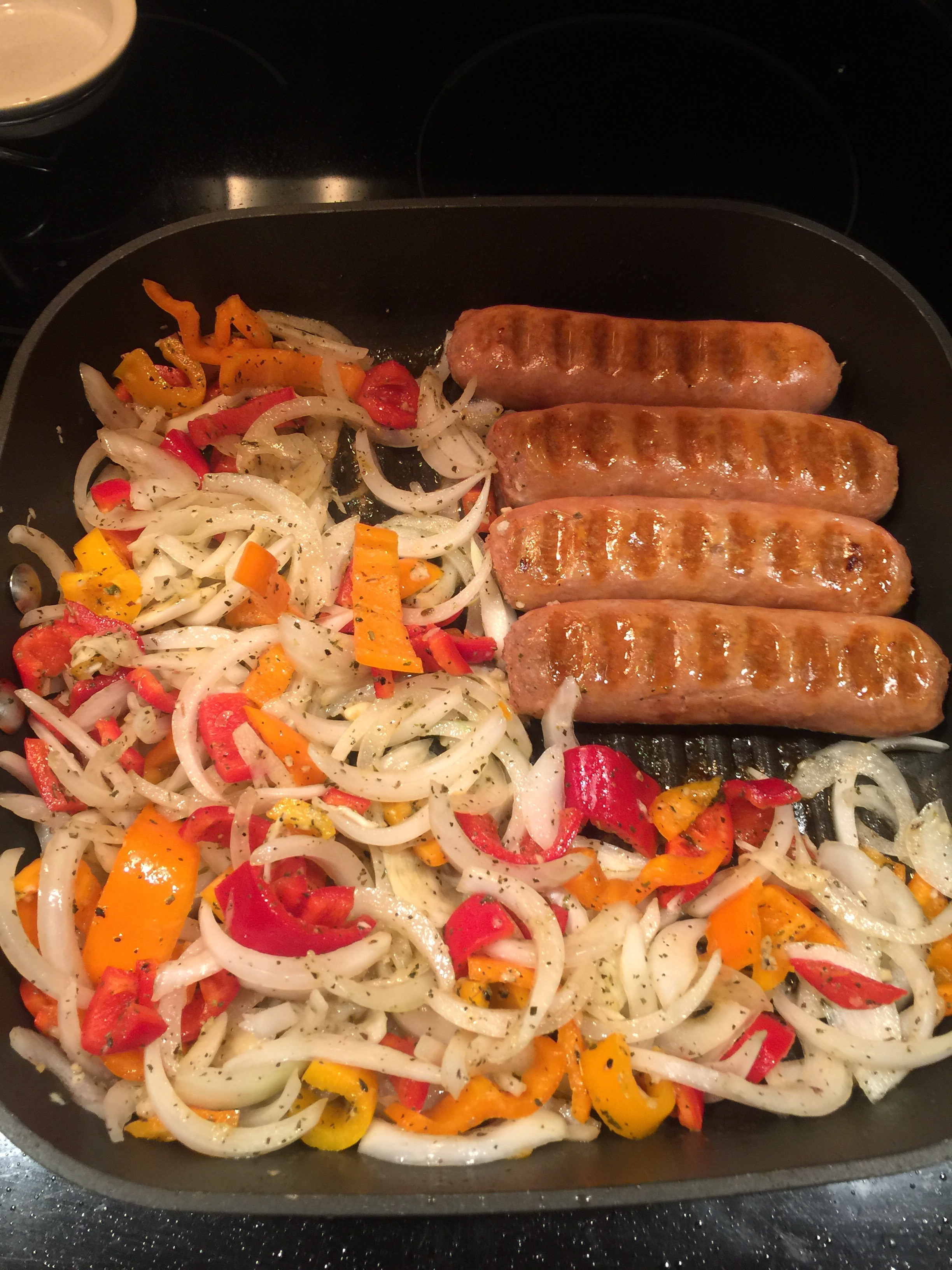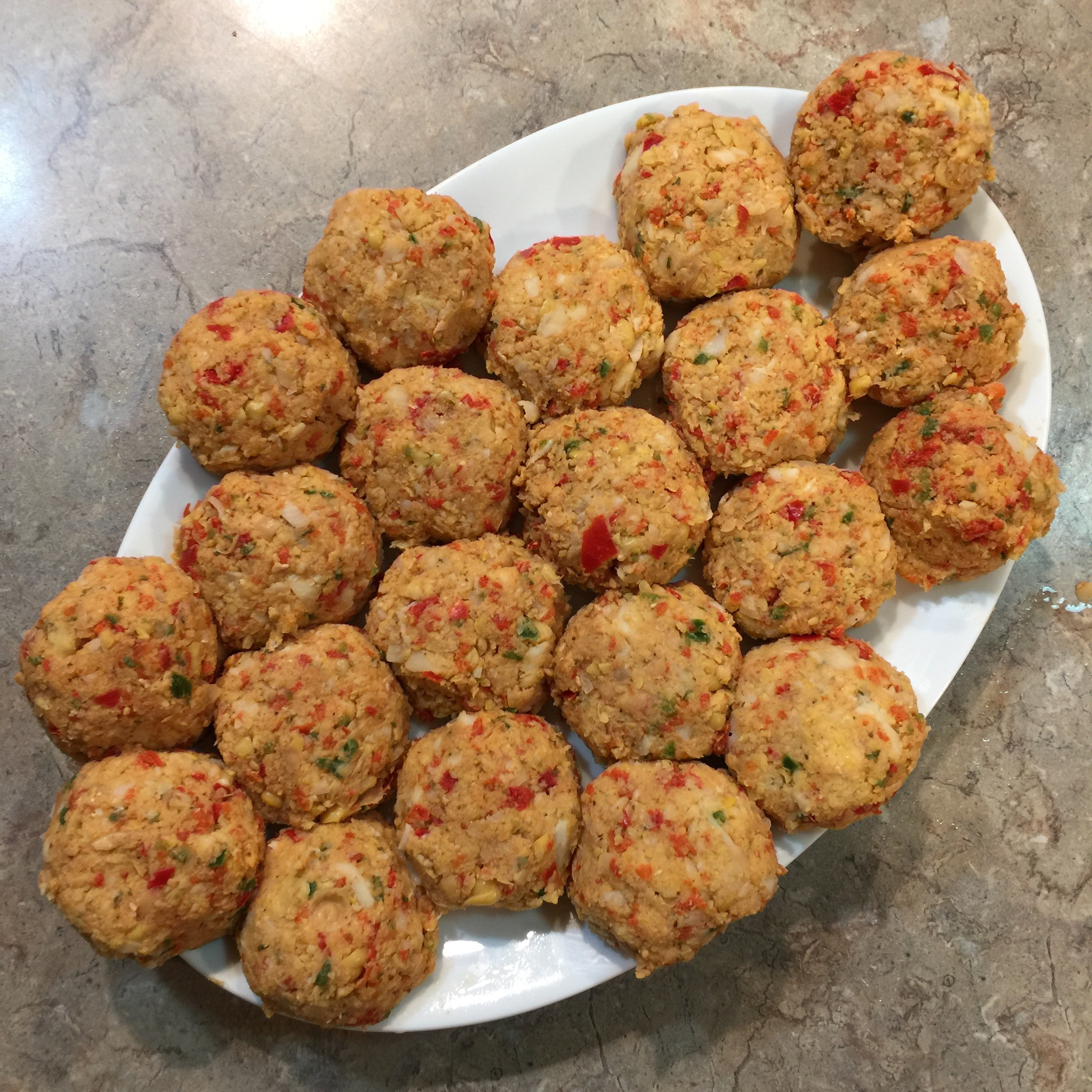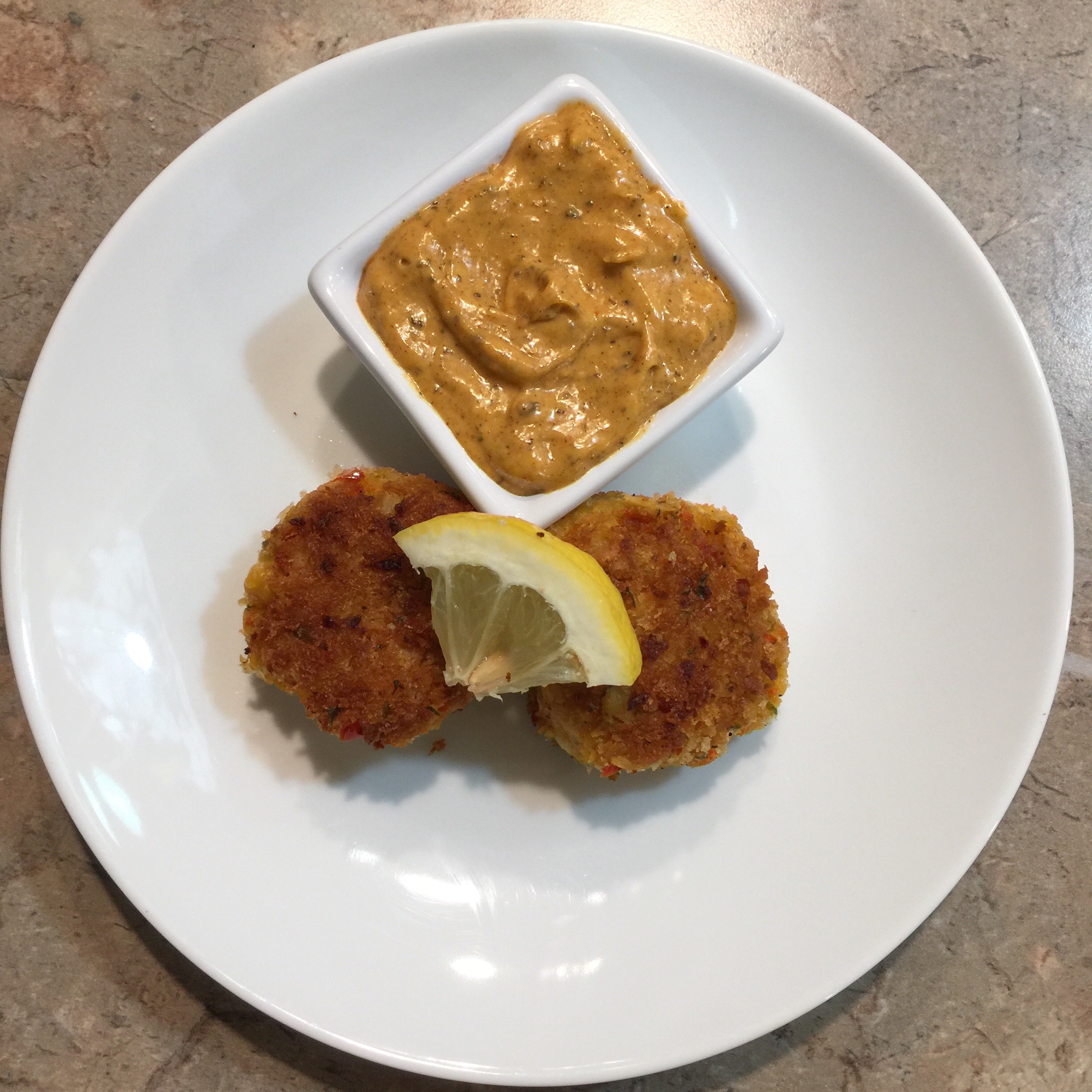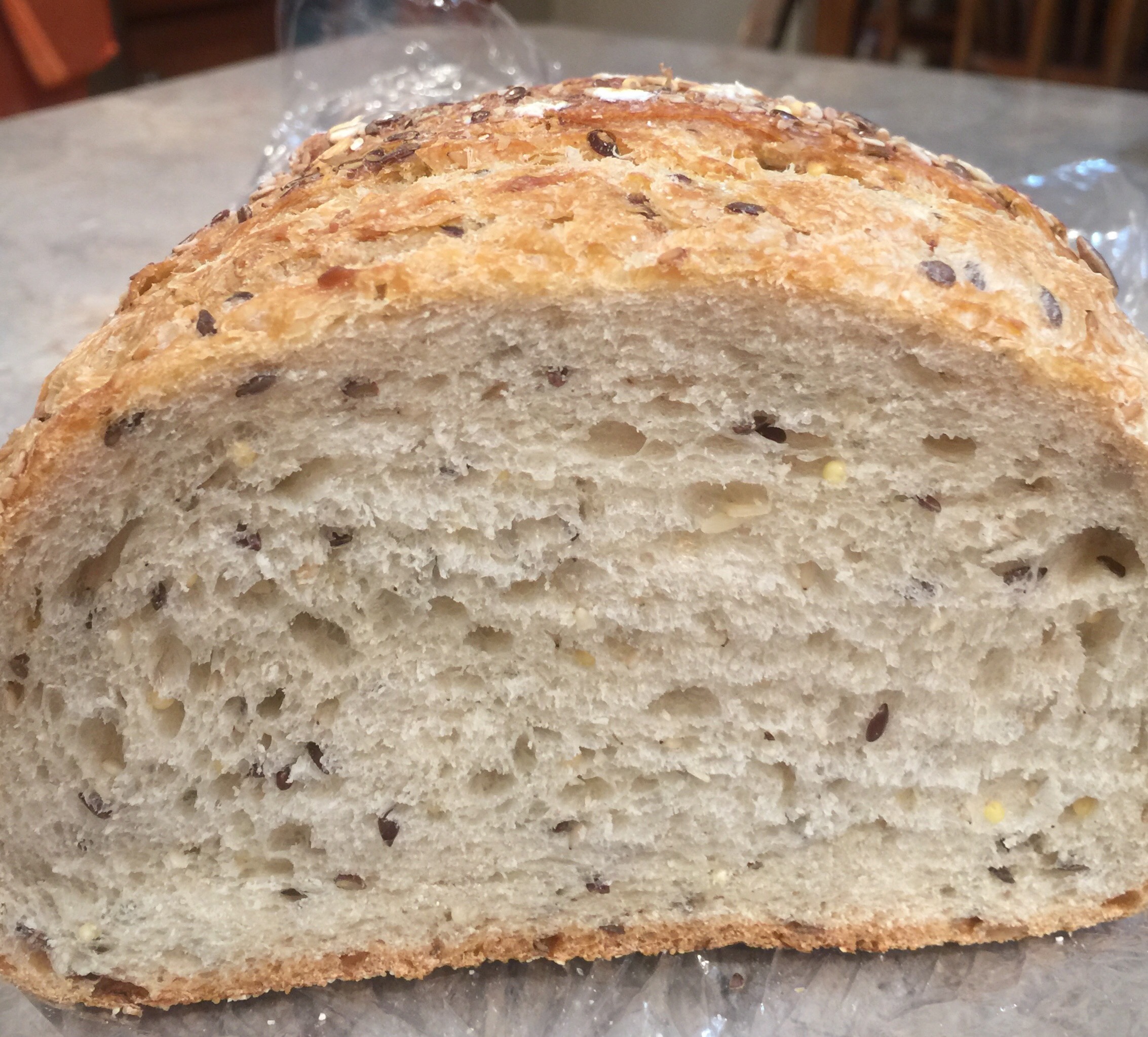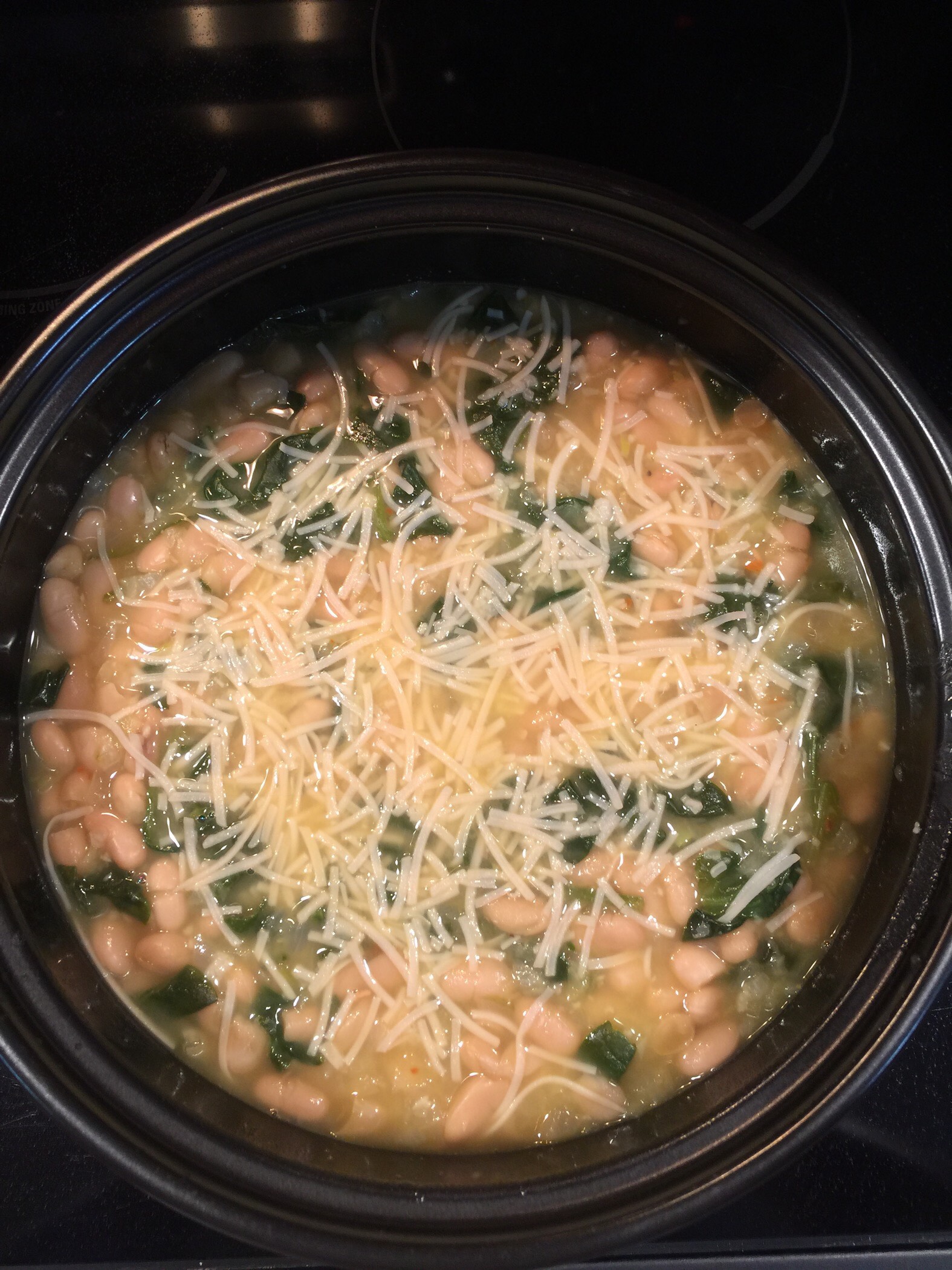When making a lifestyle change, it’s common to worry about things you will be giving up. For Linda and Joe Cahill choosing to follow a plant-based diet was motivated by a desire for better health. Their first goal was to improve their health.
If you’ve been following Joe and Linda’s journey with us, you will know within two weeks of changing to a plant based diet, Joe’s A1C levels were normal and he was off his diabetes and high blood pressure medications. He started dropping pounds and felt more energetic. Linda and Joe both lowered their cholesterol. Vegan diets can be lacking in Vitamins B12 and D, long-chain Omega-3s, Iodine, Iron, Calcium and Zinc, so it is important to consult your physician about the need for supplements (especially Vitamin B12).
According to Linda, “Joe and I have never regretted our decision, but there were times when I thought, ‘I’m never going to have a real pizza again or a cheeseburger.’ My daughter Caitlin and her husband Jordan have been vegan for about seven years now, and they’ve been teaching us about smart swaps, so we can enjoy healthier versions of the foods/recipes we love. I also found this amazing cookbook, The New Chicago Diner Cookbook (the original Chicago Diner Cookbook is also available). It features recipes from the Chicago Diner, one of the oldest vegan restaurants in the United States. It has ‘vegan versions’ of many of our favorite recipes.”*
Smart Swaps – What are they? Where do I find them? Why are they important?
These are the some of the questions Linda and Joe will be answering this month and in the coming months with a little help from Caitlyn and Jordan.
Most grocery stores carry a variety of vegan foods. Stores such as Whole Foods, Fresh Thyme Farmer’s Market, The Fresh Market and Trader Joe’s usually have a larger selection of plant-based foods. Check your favorite stores first and read the labels to make sure the product you want does not contain eggs, gelatin, butter, cream, cheese from cows or goats, milk from cows or goats, animal fat, meat, poultry, lamb or beef, fish, shellfish, shrimp, lobster or honey.**
Joe and Linda’s Vegan pizza
PIZZA:
Problem areas – crust, sauce, toppings, cheese
Traditional pizza dough is made with eggs – after trying several brands of vegan pizza dough, Joe and Linda discovered Trader Joe’s vegan pizza dough. After baking, the taste and texture is a match for traditional pizza crust. FYI – Joe and Linda are not fans of cauliflower crust. “We tried several ready-made cauliflower crusts and we tried making it from scratch, but the crusts all ended up in the garbage,” said Linda.
You can make your own sauce or use a commercial vegan pizza sauce and add fresh spices (read the labels and be willing to try a few to find your favorite).
Select your favorite vegetables, (tomatoes, onions, spinach, red, yellow or green peppers, hot peppers, or broccoli) – get creative - add mushrooms and/or a meat substitute.
I saved cheese for last because according to Linda, cheese is the hardest ingredient to get right. At the grocery store, typically you have a choice of soy cheese or a cheese made from nuts – cheeses can be made from cashews, almonds. Some stores may also carry cheese made from chickpea brine (aquafaba). Linda and Joe prefer cashew or almond cheese because the taste and texture are the most similar to cheese from cows and it melts better – important on pizza and other cooked foods. Fresh Thyme Farmer’s Market has delicious varieties of Chao vegan mozzarella and Parmesan cheese substitutes.
Cheeseburgers:
There are some great recipes in the cookbook and online and most grocery stores carry several varieties of veggie burgers. It’s a matter of personal taste whether you prefer burgers made of mushrooms, black beans, chickpeas, millet or a combination of these key ingredients.
Linda and Joe’s favorite burger won this YouTube veggie burger challenge:
Meat Substitutes:
Tofu is made from soybeans and is high in protein and calcium. It can be used in place of pork, chicken, beef and seafood
Tempeh is made from fermented tofu. It is firmer and grainier than tofu and has a nutty flavor. It is high in protein, fiber, calcium and vitamins. It is a good replacement for fish or ground beef.
Seitan is processed wheat gluten and has a texture very similar to meat. It is a great substitute for chicken, beef or pork and can be prepared using several cooking methods (grilling, frying, braising, etc.). Though seitan is available in grocery stores, Joe recently made seitan from a recipe in The New Chicago Diner Cookbook. According to Joe, “the process is a bit complicated, but seitan is so versatile and delicious, it’s worth the extra effort to make.” The first night they enjoyed seitan gyros. Next up will be seitan corn beef sandwiches which are made by marinating thinly sliced pieces of seitan in beet and pickle juice for two days.
TVP or TSP is textured vegetable protein/textured soy protein, and it’s an inexpensive meat substitute made of dehydrated protein that comes in granules or chunks. Once rehydrated, it can be used in place of ground beef, chicken or lamb, and in recipes and to make burgers, cutlets or meatloaf.
Jackfruit is slightly sweet with a mild pineapple taste that works well with a variety of spices. It can be slow cooked or roasted and used in place of pulled pork or bbq pork or in Indian, Mexican or Chinese dishes.
Mushrooms, especially Cremini and Portobello, are healthy and filling and can be used to replace any meat in any recipe.
Lentils, Beans and Legumes – Lentils are inexpensive. They come in red, green, brown and black varieties and make an excellent replacement for ground beef. Beans and legumes are healthy and filling. They are also inexpensive. There are many different varieties to choose from: peanuts, black beans, pinto beans, kidney beans, chickpeas, navy beans, aduki beans, split peas, and black-eyed peas. Beans are delicious in soups, stews and chili.
Millet – in addition to being gluten-free and a great cereal grain, millet can b used in place of ground beef or ground sausage to make meatballs, meatloaf or burgers. When Joe and Linda go to Fortuitea Café, one of their favorite vegan restaurants, Joe always orders the millet meatloaf.
Hearts of Palm are rich in fiber, potassium, iron and several vitamins, but higher in sodium. They are an excellent substitute for fish, seafood and other meats. Think fish tacos, vegan crab cakes or lobster rolls and add some flavor to your favorite salad with hearts of palm.
Pea Protein is a complete protein containing all nine essential among acids. It contains a high amount of protein while being low in calories and carbs. Pea protein benefits the heart, supports weight loss, lowers the risk of kidney disease, builds muscle and regulates blood sugar. It’s ideal for use in smoothies after your workouts. It is one of the most hypoallergenic of all protein powders – it contains no gluten or dairy and does not cause bloating.
Dairy substitutes:
Cashew and Almond cheeses made by Chao are excellent – they melt well in recipes and have the same creamy texture as cheese from cows or goats.
Butter – Earth Balance has a line of buttery spreads made with olive oil.
Ice cream – there are soy, cashew and coconut ice creams in a variety of flavors
Milk - you typically need to add extra seasonings in savory recipes to compensate for the sweeter flavors of most varieties of nondairy milks.
Soy Milk has almost as much protein as dairy milk, less fat, no cholesterol, and fortified soy milk is a great source of calcium and you can also get brands fortified with Vitamin B12. Available in unsweetened, chocolate and vanilla
Rice Milk is not as thick as soy or dairy milks and it is lower in protein than soy or almond milk. It is slightly sweet and better suited with your morning cereal or in a dessert recipe than in savory or salty dishes.
Hemp Milk is harder to find than soy, rice or almond milk. Look for it in non-refrigerated packages near the breakfast/cereal aisle.
Almond Milk has a creamy consistency and a nutty taste. Best used in fruit smoothies, creamy drinks, and desserts instead of savory dishes.
Cashew Milk is less nutty than almond milk and has a sweeter taste. It is free of lactose, dairy, soy and gluten and comes in sweetened and unsweetened varieties. It is slightly lower in calories than almond milk, but comparable in fat content, calcium, and vitamins D, E and A, but is lacking in protein. Cashew milk has a more subtle taste and will not overpower recipes.
Oat Milk is made with presoaked oat groats that have been hulled and broken into pieces. It has a mild, slightly sweet taste and makes an excellent substitute for low-fat or skim dairy milk. It is low in fat, lactose free, cholesterol free and contains 10 minerals and 25 vitamins. It is higher in vitaminA than cow’s milk and is a good source of calcium and one serving of oat milk has 10% of the RDA of iron.
Nutritional Yeast is a single-cell organism grown on molasses, harvested, washed, dried and heated up to deactivate it. It is dairy-free and has a cheesy flavor. It is gluten-free, anti-viral, contains vitamin B12, Folic acid, and iron, is low in calories (contains no sugar and can aid in weight loss) and is high in fiber, and a good source of protein. Nutritional yeast also contains probiotics which can aid in digestion. As if you needed more incentive to add it to your recipes, nutritional yeast promotes healthy hair, skin ad nails. Sprinkle it on popcorn for a nutty, cheesy treat.
Egg Substitute – Linda and Joe recommend:
Bob’s Red Mill Vegetarian Egg Replacer which is made with whole soy flour, wheat gluten, corn syrup solids, and algin. It can be used to replace eggs in recipes.
Bob’s Red Mill gluten Free Egg Replacer is made with potato starch, tapioca flour, baking soda and psyllium husk. It is cholesterol free and each package contains the equivalent of 34 eggs.
Both mix with water.
Photos courtesy of the Cahill family
*Linda will be reviewing The New Chicago Diner Cookbook in an upcoming issue.
**Honey, honeycomb and bee pollen are not vegan, but many vegans do consume them. There are also several foods that contain animal-derived ingredients or additives, please consult the internet for more information. How strictly you adhere to a plant-based diet is up to you.
This is a an informative article to get you started, https://www.healthline.com/nutrition/things-vegans-dont-eat









